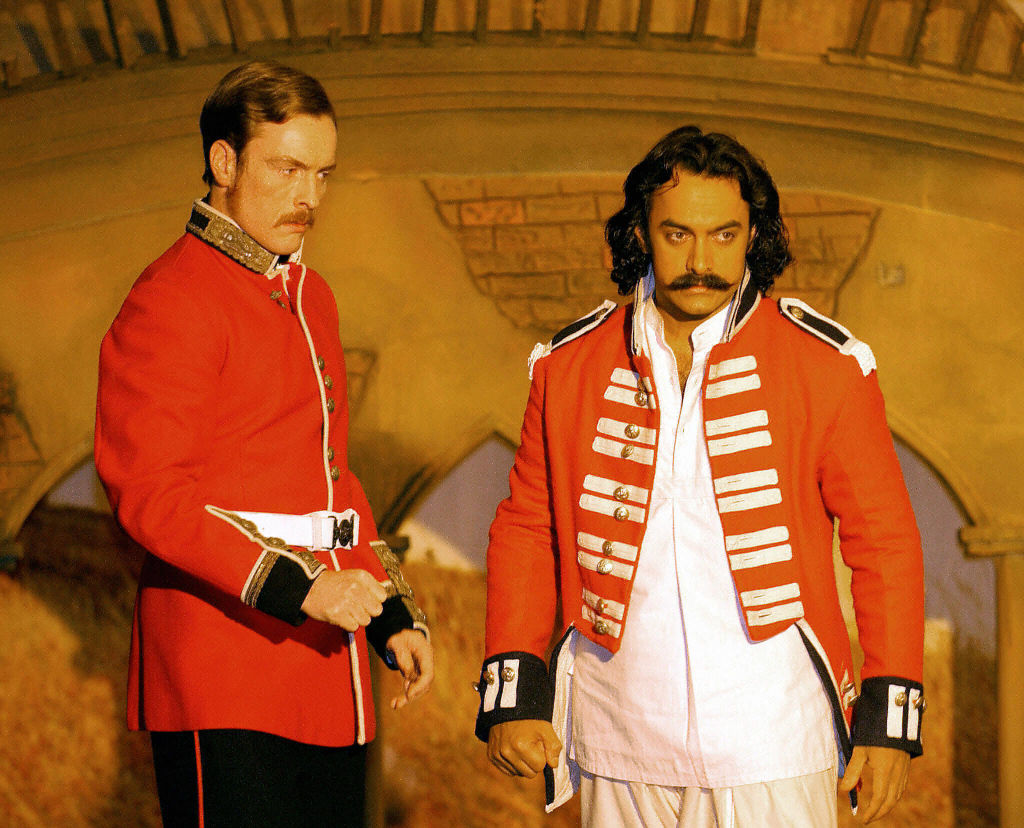- Wednesday, April 24, 2024

By: Shubham Ghosh
INDIA’S Independence Day week is generally synonymous with films that are designed to evoke the spirit of patriotism and this year is no exception as the line-up of marquee big-star releases reflects the mood of muscular nationalism rather than the struggles and preoccupations of the early days of the country’s nationhood.
Dharma Productions’ “Shershaah”, Ajay Devgn-starrer “Bhuj: The Pride of India” and Akshay Kumar’s “Bell Bottom”, all of which are releasing on screens this week, continue the tradition of cinema mirroring the concerns of the day, far removed in tonality from films such as “Naya Daur”, “Upkar” and “Shaheed” of the 1950s and 60s that spoke of the freedom struggle and farmers’ concerns.
ALSO READ: India at 74: Exclusive interview of Indian High Commissioner to UK
“Earlier, it was about how India fought British, how new India needed socialism, equality, secularism for progress. Now these things have been made redundant,” film historian S M M Asusaja told PTI. The patriotic narrative has changed along with the meaning of nationalism, he added.
The 70s saw films like “Purab Aur Paschim”, “Roti Kapda Aur Makaan” and “Balidaan” — glossy multi-starrers centred around Indian culture and the threat to it.
The 80s had “Kranti” — a fictional account of India’s freedom struggle, as well as the sharp and satirical “Jaane Bhi Do Yaaron” and “Albert Pinto Ko Gussa Kyon Aata Hai” and the intense “Ardh Satya” that focused on corruption across sectors or discussed the evils of capitalism.
India at 74: How Goa is losing its Portuguese flavour
In the late 90s and early 2000s, the mood shifted with “Border”, “Lakshya” and “Gadar” taking the centrestage, films that were shriller in their projections of patriotism.
The 2000s also saw the success of “Rang De Basanti”, “The Legend of Bhagat Singh” and “Swades: We The People” — sober, emotive portrayals of the past and the hopes and dreams of an aspirational India.
In the last few years, a sub-genre of celebrating unsung heroes has emerged with “Raazi”, “Uri: The Surgical Strike”, “Mission Mangal”, “PadMan” and “Toilet: Ek Prem Katha”.
While Akshay Kumar celebrated the achievement of a Tamil Nadu-based social activist who revolutionized the concept of menstrual hygiene in “Padman” and of space scientists in “Mission Mangal”, Alia Bhatt’s “Raazi” revolved around the valour of an Indian spy and “Uri: The Surgical Strike” was based on the surgical strikes carried out by the Indian Army.
“It has almost become like a driven narrative of forceful nationalism. It is not just limited to ISRO doing a great job or some other great Indian seen in a biopic, it is also about the celebration of what the current government is doing, that is deliberately linked to nationalism. The idea of nationalism has been diluted,” Ausaja said.
Film critic Ajay Brahmataj also thought films with patriotic themes have undergone a change in Bollywood. “We have seen films being made on historical heroes like Shivaji Maharaj in ‘Sher Shivaji’ and they are known as national heroes. It is all about India’s freedom movement… Today, there is a new way of displaying nationalism and this is in sync with the political party BJP. This is beyond jingoism,” he said.
Kumar, who currently tops the list of transporting real-life heroes to the reel world, courtesy “Holiday: A Soldier is Never Off Duty”, “Baby”, “Airlift”, “Toilet: Ek Prem Katha”, “Kesari”, “Gold”, “Padman”, “Mission Mangal” and now “Bell Bottom”, said the country’s unsung heroes deserve praise for their service.
“Cinema does play an important role in showing nationalism. It is essential that we tell everyone about these people who do so much for the country, the risk they take,” Kumar told PTI.
“Even if there is more glorification being shown (referring to unsung heroes), I don’t see any problem in that. I feel it shouldn’t be less, if it is more then it is ok. They deserve praise,” he said.
Devgn, who has come up with “Bhuj: The Pride of India” after “Tanhaji”, which revolved around Maratha warrior and Shivaji’s general Tanaji Malusare, said, “You keep characters and screenplay very real. You should know where to draw the line. In our film “Bhuj: The Pride of India”, there’s no jingoism. In “Tanhaji” also, there was no jingoism. They were fighting for the country but not crying that they loved their country.”
Several more films in the pipeline have patriotic fervour at their heart — up next are biopics on former field Marshal Sam Manekshaw by director Meghna Gulzar and the youngest Param Vir Chakra recipient Arun Khetarpal to be directed by Sriram Raghavan besides the Kangana Ranaut-starrer “Tejas”.
(With agency inputs)
![]()